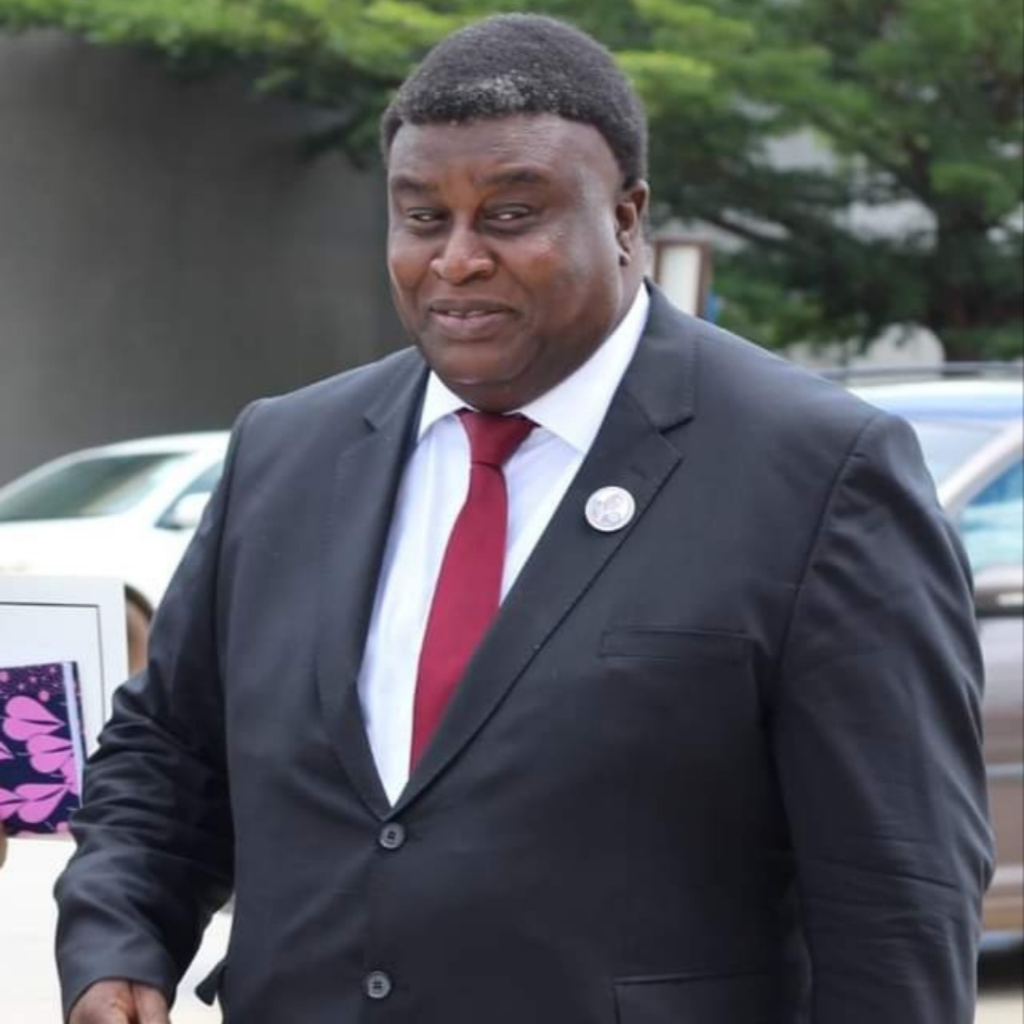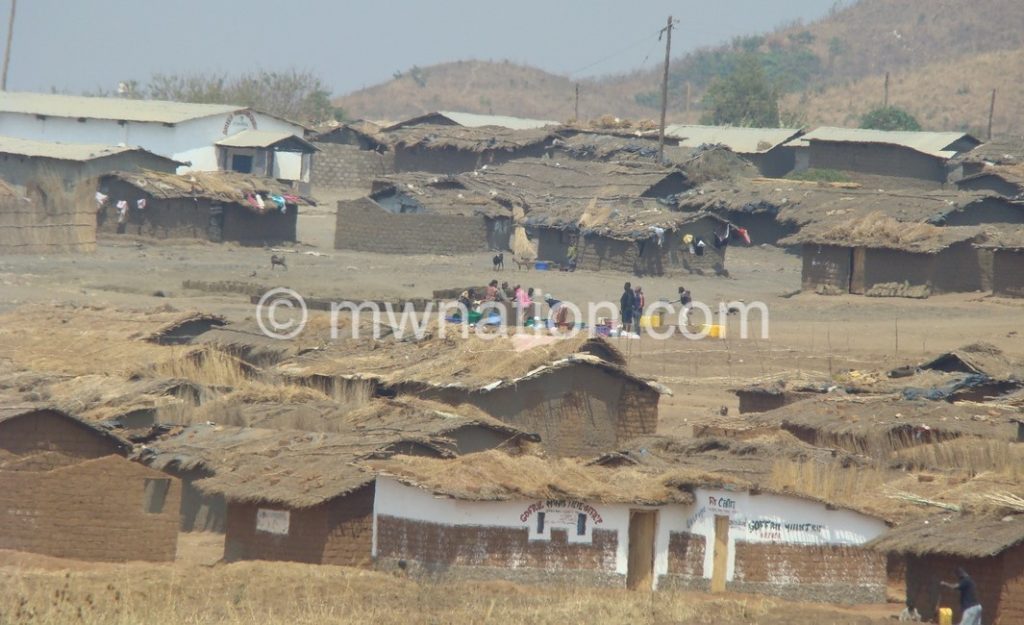Pressure mounts over refugees situation
Local and international organisations are exerting pressure on Malawi Government to stop its crackdown on foreign nationals to forcibly move them to Dzaleka Refugee Camp in Dowa District.
Malawi Human Rights Commission (MHRC) has since launched investigations into alleged rights violations against foreign nationals arrested in the exercise. The suspects are being held at Maula Prison in Lilongwe purportedly for screening.

In an interview yesterday, MHRC director of civil and political rights Peter Chisi said there are several alleged rights violations, including beatings, dispossession of property, bundling them in a prison without charges and subjecting children to harsh conditions.
He said: “Reports are that we have some refugees that are critically ill, like a woman who just gave birth about a week ago through Cesarean section and has been rounded up.
“There are reports that some of them have been beaten up, that conditions in which they are put at Maula Prison are not fine, and we also want to find out why they are in prison if they are not being charged. They are in prison without a detention order.”
Chisi said it was difficult to ascertain the time-frame for the inquiry as authorities were not being cooperative.

In a joint statement, the Centre for Human Rights Education, Advice and Assistance (Chreaa) and the Southern Africa Litigation Centre (Salc) expressed worry over lack of cooperation from law enforcers on the probe.
Reads the statement in part: “Chreaa and Salc are also deeply concerned with reports of refusal of access by human rights monitoring bodies at Maula Prison in relation to the detained refugees and asylum seekers.”
Chreaa and Salc also appealed to government to respect international law obligations to provide non-custodial measures and that detention of migrants should be a last resort.
In a separate statement signed by its director Joseph Zimba, Justice In Situ (JIS) also reminded Capital Hill that it has the responsibility to protect all human beings under the UNHCR 1951 Convention and its 1967 Protocol.
The statement said: “We at JIS, advocate for refugees’ right to minimum, acceptable conditions of stay, which would include freedom of movement, the right to education and gainful employment or self-employment, access to public relief and assistance, including health facilities, the possibility of acquiring and disposing of property and the right to obtain travel and identity documents.”
The United Nations High Commissioner for Refugees (UNHCR) Malawi office said in response to our queries yesterday that relocating self-sufficient and productive refugees and
group. treatment of the vulnerable
Malawi Government launched the operation on Wednesday to smoke out refugees or asylum seekers without valid documentation, but residing in cities and towns outside the designated Dzaleka Refugee Camp in Dowa District.
Ministry of Homeland Security spokesperson Peter Botha in an interview yesterday said the people were arrested regardless of whether they had papers.
He confirmed that out of the 408 suspects, 117 are children, 202 are men and 89 are women.
Botha said some of the detained may have had valid permits, but the operation did not allow time for verification.
He said: “People must understand that this was an operation and not a meet and greet. Of course, our officers had to engage and explain to the people what the operation was about. For us, Maula was the only safe place where we could do the screening to separate those with valid documents from those without.”
Meanwhile, Malawi Human Rights Commission (MHRC) director of civil and political rights Peter Chisi in an interview yesterday said it was shocking that authorities detained the suspects and chose to use Maula Prison for the screening process.
He said: “This is a serious anomaly. They did not have to keep children in prison. It is against the law and the stipulation on the convention to the right of children.
“But even the adults were not supposed to be there. You should only be taken to prison after a court order. We are investigating this and we may have to take legal action, otherwise this is unacceptable.”
C h i s i a l s o ex p r e s s e d disappointment that the commission was denied access to the detainees at Maula Prison, saying this was unlawful.
Human Rights Defenders Coalition (HRDC), which issued a statement condemning the operation, also expressed shock at how children ended up victimised in the process.
HRDC chairperson Gift Trapence said the action sends a wrong message to the international community on human rights.
He said: “We have people in there with valid papers, but ended up being arrested. Children, too, have been victimised. We feel government needs to reconsider its position and release these people as soon as possible.
“This is a rushed process and we condemn the government for the manner it has carried out the exercise. It appears this government is quite emotional and it is sending a wrong message on matters of human rights. Refugees too have rights and that has to be respected.”
Responding to MHRC asylum-seekers to Dzaleka camp would only worsen the problems at the already overcrowded camp.
Commenting on alleged rights violations at Maula Prison, Malawi Prison Service spokesperson Chimwemwe Shaba said they were only asked to provide shelter.
“Those are not prisoners, for us we have just provided a place, more of a camp. They haven’t come as prisoners or remandees. The police can better speak on the other issues,” he said.
Minister of Homeland Security Ken Zikhale Ng’oma in an interview wondered why institutions such as MHRC and other rights groups were against government on the exercise.
He said: “Ask them to also go to South Africa where Malawians are being mistreated and none of them has instituted human right investigations up to now! Very sad that they only work when it is Malawi.”
Ng’oma insisted that those being rounded up were economic illegal immigrants and not refugees.
He said: “The UN cut the budget to maintain them at Dzaleka, why? So, who is violating human rights here? Those who cut aid and support to refugees for them to suffer or us who are repatriating them on their behalf?”
Recently, the UNHRC said it was battling underfunding such that, by March 28 2023, it had only received six percent of the required $27.2 million (about K28 billion) to adequately support refugees and asylum-seekers in Malawi this year.





